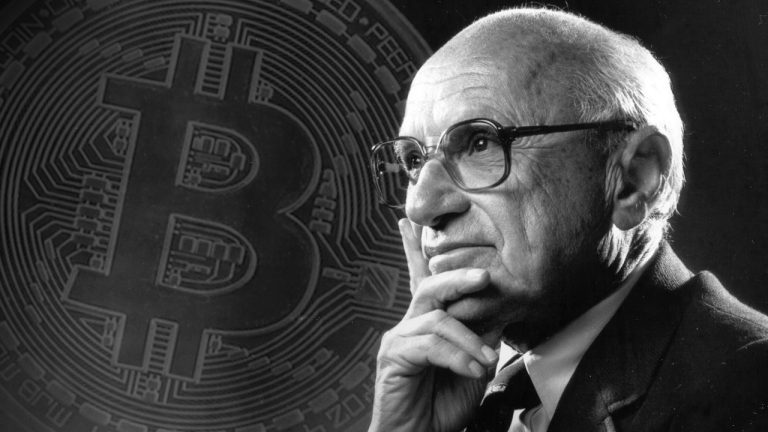
A computer scientist who claims to be the pseudonymous creator of Bitcoin (BTC) is dropping his lawsuit against Bitcoin developers. According to a new post by the Bitcoin Legal Defense Fund, Craig Wright, who for years proclaimed to be Satoshi Nakamoto, is dropping his case against the 12 Bitcoin developers and others he sued in […]
The post Self-Proclaimed Bitcoin Creator Craig Wright Drops Lawsuit Against BTC Developers appeared first on The Daily Hodl.
 After Judge James Mellor in the U.K. rendered his decision in the notable lawsuit initiated by the Crypto Open Patent Alliance (COPA) against Craig Wright, he concluded that Wright did not embody the persona of the pseudonymous Satoshi Nakamoto. Subsequently, Mellor enforced a worldwide injunction on Wright’s holdings, freezing assets valued at £6.7 million (approximately […]
After Judge James Mellor in the U.K. rendered his decision in the notable lawsuit initiated by the Crypto Open Patent Alliance (COPA) against Craig Wright, he concluded that Wright did not embody the persona of the pseudonymous Satoshi Nakamoto. Subsequently, Mellor enforced a worldwide injunction on Wright’s holdings, freezing assets valued at £6.7 million (approximately […] In recent times, the cryptocurrency landscape has experienced a widespread decline, yet the digital asset bitcoinsv, known for its associations with Craig Wright, has seen the most significant weekly downturn within the crypto sphere, dropping 18.9% versus the U.S. dollar in seven days. This decline in bitcoinsv’s value closely follows the verdict by U.K. Judge […]
In recent times, the cryptocurrency landscape has experienced a widespread decline, yet the digital asset bitcoinsv, known for its associations with Craig Wright, has seen the most significant weekly downturn within the crypto sphere, dropping 18.9% versus the U.S. dollar in seven days. This decline in bitcoinsv’s value closely follows the verdict by U.K. Judge […] On March 14, Judge James Mellor of the U.K. reached a conclusion in the high-profile case brought by the Crypto Open Patent Alliance (COPA) against Craig Wright, finding him not to be the individual behind the pseudonym Satoshi Nakamoto. This decision came after several weeks of proceedings, concluding with the final arguments recently presented. The […]
On March 14, Judge James Mellor of the U.K. reached a conclusion in the high-profile case brought by the Crypto Open Patent Alliance (COPA) against Craig Wright, finding him not to be the individual behind the pseudonym Satoshi Nakamoto. This decision came after several weeks of proceedings, concluding with the final arguments recently presented. The […] Having achieved its highest value ever on March 5, 2024, precisely at 10:03 a.m. Eastern Time (ET) on Tuesday, the price of bitcoin has declined by more than 11% against the greenback at 3:00 p.m. ET. Currently, bitcoin boasts a global trading volume of $52.34 billion, contributing to the total $275 billion exchanged throughout the […]
Having achieved its highest value ever on March 5, 2024, precisely at 10:03 a.m. Eastern Time (ET) on Tuesday, the price of bitcoin has declined by more than 11% against the greenback at 3:00 p.m. ET. Currently, bitcoin boasts a global trading volume of $52.34 billion, contributing to the total $275 billion exchanged throughout the […] Nearly two decades before the Bitcoin network revolutionized the digital world, Nobel Laureate Milton Friedman foresaw the emergence of digital currencies. His prediction of an electronic currency facilitating anonymous transactions has become a cornerstone in understanding the evolution of digital finance. Ahead of His Time: How Milton Friedman Envisioned Bitcoin Before the conceptualization of Satoshi […]
Nearly two decades before the Bitcoin network revolutionized the digital world, Nobel Laureate Milton Friedman foresaw the emergence of digital currencies. His prediction of an electronic currency facilitating anonymous transactions has become a cornerstone in understanding the evolution of digital finance. Ahead of His Time: How Milton Friedman Envisioned Bitcoin Before the conceptualization of Satoshi […] 2024 has unfolded as a flourishing year for bitcoin’s valuation, as its market capitalization breezed past the $1 trillion milestone, positioning the cryptocurrency as the world’s tenth-largest asset by overall market valuation. This uptick in price has significantly boosted the net worth of Bitcoin’s mysterious creator, Satoshi Nakamoto, elevating the value of the inventor’s holdings […]
2024 has unfolded as a flourishing year for bitcoin’s valuation, as its market capitalization breezed past the $1 trillion milestone, positioning the cryptocurrency as the world’s tenth-largest asset by overall market valuation. This uptick in price has significantly boosted the net worth of Bitcoin’s mysterious creator, Satoshi Nakamoto, elevating the value of the inventor’s holdings […]
Newly released emails from Satoshi Nakamoto from as early as May 2009 show that the Bitcoin (BTC) creator has long been concerned about the debasement of fiat currencies by central banks. The slew of emails was released by early Bitcoin contributor Martti Malmi who said that he wasn’t comfortable sharing his private correspondence with Satoshi […]
The post Newly Revealed Emails of Satoshi Revealed, Bitcoin Creator Says Fiat Currencies Breach People’s Trust appeared first on The Daily Hodl.
 This week, crypto enthusiasts and historians alike have found themselves enraptured by the wealth of newly released emails from Satoshi Nakamoto, uncovering the visionary’s early efforts with Bitcoin. Specifically, one email, identified as number #3, offers unparalleled glimpses into Nakamoto’s considerations regarding Bitcoin’s scalability, economic framework, and prospects. Emails Suggest Satoshi Nakamoto Was Quite Confident […]
This week, crypto enthusiasts and historians alike have found themselves enraptured by the wealth of newly released emails from Satoshi Nakamoto, uncovering the visionary’s early efforts with Bitcoin. Specifically, one email, identified as number #3, offers unparalleled glimpses into Nakamoto’s considerations regarding Bitcoin’s scalability, economic framework, and prospects. Emails Suggest Satoshi Nakamoto Was Quite Confident […]